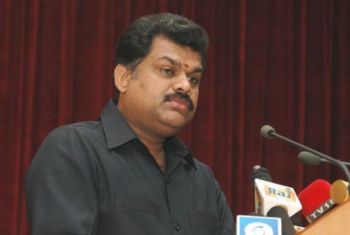
The proposed maritime regulatory Bill, which would regulate all the major and non-major ports in the country under one body, is facing opposition from various state governments, according to Union shipping minister GK Vasan.
“We are receiving reservations from various state governments. Nothing has been finalised. We are yet to listen from the state governments on that front,” he said.
Addressing the media at the 13th Maritime State Development Council Meeting (MSDC) here on Wednesday, he said the draft Bill had been put up on the website for feedback from state governments.
Gujarat with the highest number of non-major ports — 41 — in the country is opposing the move as it will lose control over its vibrant maritime sector. “The proposed Bill will take away the autonomy and freedom of the state government,” said Saurabhbhai Patel, state industries minister. The overall growth rate of the major ports in the country is only 1.6 per cent, whereas the rate of growth of Gujarat port sector is 12.3 per cent.
Apart from Gujarat, Tamil Nadu, Karnataka and Maharashtra are opposing the Bill.
The proposed Bill will replace the existing Tariff Authority for Major Ports (TAMP). TAMP was constituted in April 1997 to provide for an independent authority to regulate all tariffs, both vessel-related and cargo-related, and rates for lease of properties in respect of Major Port Trusts and the private operators located therein.
INITIATIVES
The shipping ministry, at the MSDC, has taken various initiatives to increase the growth of the industry. It has set a time line for the coastal states who have not yet constituted their maritime boards, and urged them to set up their state Maritime Boards.
It would work with the Ministry of Environment and Forests and the state governments for expediting port projects. Vasan said they had proposed to make all the ports in the country International Ship and Port Facility Security (ISPS)-complaint. At present, only 53 non-major ports are ISPS-compliant.
The ports would also be equipped with Tier-I pollution control system to combat oil pollution. They would also give priority to Navy and coast guard vessels. Among others, port community system (PCS) would be implemented in all major and non-major ports for facilitating paper-less transactions.
According to Vasan, the capacity of Indian ports crossed one billion tonne in January 2011 while the tonnage capacity has crossed the 10-million gross tonnage mark.
The maritime agenda for the decade 2010-20 has set a target to expand the country’s port capacity three times to 3.2 billion tonne by 2020, increase tonnage capacity four-fold, and the share of Indian shipping to 5 per cent from the current 1 per cent in the global market. In three years, it aims at increasing the seafarer share to 9 per cent from the 7 per cent now, the minister added.
We use cookies to improve your experience. By continuing to use our site, you accept our Cookies, Privacy Policy,Terms and Conditions. Close X